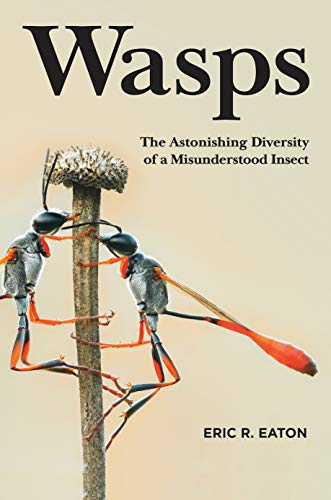10 Invertebrates Books That Will Change How You See Nature
Jane Goodall, Marc Bekoff, and Michael Berry share their picks for must-read Invertebrates Books that enlighten and inspire


What if the tiny creatures all around us are more essential and fascinating than we ever imagined? Invertebrates, often overlooked or misunderstood, form the backbone of ecosystems worldwide—from the buzzing wasps to the enigmatic octopuses beneath the waves. Their diversity and complexity challenge our assumptions and open doors to understanding nature’s deeper rhythms.
Jane Goodall, renowned primatologist, praises Super Fly for transforming perceptions of flies from nuisances to vital ecological players. Meanwhile, Marc Bekoff, a University of Colorado professor, highlights Wasps and The Lives of Octopuses and Their Relatives for their vivid insights into insect diversity and cephalopod intelligence. And Michael Berry, a science communicator, applauds Buzz, Sting, Bite for revealing the surprising power insects wield in ecosystems.
These expert-curated books offer rich, authoritative perspectives that can deepen your knowledge and appreciation of invertebrates. Yet, if your interests or skill level call for a more tailored approach, consider creating a personalized Invertebrates book to build on these insights with content customized to your goals and background.
Recommended by Jane Goodall
Primatologist and conservationist
“Flies! Those irritating insects that settle on your food when you eat outside in summer, cluster round the eyes of horses, and carry diseases on their little tickling feet. How can someone write a whole book on flies! The best thing I can say is “Read Super Fly!” It is utterly fascinating, written with clear prose, a delightful sense of humour, and by a gifted naturalist and storyteller. And Jonathan Balcombe not only writes with authority about the incredible diversity of fly species, but with a real love for these fascinating winged beings that play such an important role in the tapestry of life.”
by Jonathan Balcombe··You?
by Jonathan Balcombe··You?
What if everything you thought about flies was wrong? Jonathan Balcombe, a biologist with a PhD in ethology, challenges the common view of flies as mere pests by revealing their surprising diversity and vital ecological roles. You’ll learn about flies as pollinators, waste disposers, and even species that thrive in extreme environments, such as the Petroleum Fly breeding in crude oil. The book dives into fascinating examples like the Chocolate Midge, the sole pollinator of cacao trees, illustrating the complex behaviors and evolutionary significance of these insects. If you’re curious about nature’s overlooked players and want to understand how flies shape ecosystems, this book offers a fresh perspective without sugarcoating their quirks.
Recommended by Marc Bekoff
University of Colorado professor, animal behavior expert
“[A] highly informative and beautifully illustrated book.”
by Eric R. Eaton··You?
by Eric R. Eaton··You?
Eric R. Eaton draws on his extensive experience as an entomologist with institutions like the Smithsonian to illuminate the often-overlooked world of wasps. You’ll discover a vivid portrayal of their diversity, from tiny fairyflies to imposing tarantula hawks, and learn how these insects contribute to ecosystems through pest control, pollination, and even inspiring engineering designs. Chapters delve into wasp evolution, behavior, and their surprising roles in agriculture and medicine, challenging common misconceptions about their sting. If you’re curious about ecology or insect life and want to appreciate these creatures beyond fear, this book offers detailed, richly illustrated insights that shift your perspective.
by TailoredRead AI·
This tailored exploration delves deeply into the astonishing diversity and ecological roles of invertebrates, offering a pathway that matches your unique background and goals. It examines their complex behaviors, evolutionary adaptations, and the ecosystems they inhabit, providing a rich understanding that goes beyond surface-level facts. By focusing on your interests, this personalized guide highlights the fascinating biology of creatures from insects to cephalopods, revealing their integral place in nature's web. The book presents a coherent synthesis of diverse topics, making intricate information accessible and engaging, and encourages you to appreciate the nuanced interactions that shape ecosystems worldwide.
Recommended by Michael Berry
Podcast Host and Science Communicator
“Sverdrup-Thygeson is a lively, witty, and discerning guide through the scientific lore surrounding some of the tiniest—though still very powerful—organisms on Earth.”
by Anne Sverdrup-Thygeson··You?
by Anne Sverdrup-Thygeson··You?
Anne Sverdrup-Thygeson's role as a conservation biology professor at the Norwegian University of Life Sciences deeply informs this engaging exploration of insects and their critical roles in ecosystems. You’ll discover surprising facts, like how insects with ears on their knees or eyes on their penises contribute to biodiversity, and why creatures as tiny as the chocolate midge are essential for crops like cocoa. The book reveals how insects underpin everything from medical research to soil health, offering a fresh perspective that challenges common aversions. If you’re curious about the natural world and want to understand why these small creatures matter so much, this book offers clear, captivating insights without oversimplifying.
Recommended by Library Journal
“This gorgeous book reveals a wonder on nearly every page and will enthrall natural history enthusiasts both amateur and expert alike.”
by Ronald Orenstein, Thomas Marent··You?
by Ronald Orenstein, Thomas Marent··You?
Ronald Orenstein, a zoologist and wildlife conservationist with a legal background, brings a richly informed perspective to this exploration of butterflies and moths. You’ll find detailed insights into their biology, from the science behind their color patterns and courtship behaviors to migration and climate change impacts. The book’s seven sections walk you through diverse butterfly families, wing mechanics, life cycles, feeding habits, and ecological interactions, all illustrated with vivid, close-up photography. Whether you're a natural history enthusiast or simply curious about these insects, the clear, jargon-light text offers a nuanced understanding that goes beyond typical field guides, making it a rewarding read if you want to deepen your appreciation of Lepidoptera.
Recommended by Marc Bekoff
University of Colorado, co-author of A Dog's World
“Beautifully written and illustrated.”
Danna Staaf’s marine biology expertise shines throughout this inviting exploration of cephalopods, from octopuses to nautiluses. You’ll gain detailed insights into their life cycles, behaviors, and ecological roles, illustrated with vivid photographs and profiles that bring these intelligent invertebrates to life. The book’s structure, organized by marine habitats, helps you understand how environment shapes adaptations across species. If you’re curious about marine life’s complexity or how cephalopods interact with their ecosystems, this book offers a clear, accessible window without overwhelming jargon.
by TailoredRead AI·
This tailored book explores the captivating world of invertebrates through a personalized, step-by-step path designed just for you. It reveals the fascinating diversity and key identification features of invertebrate species, focusing on your specific interests and background. You’ll uncover the ecological roles and unique behaviors of various groups, guided by a daily, focused approach that encourages discovery and appreciation. The content matches your goals, ensuring you build knowledge efficiently without overwhelming generalizations. This tailored guide bridges expert concepts with your learning needs, making the complex diversity of invertebrates accessible and engaging through a carefully crafted journey.
Recommended by Nature
“One resembles an exquisitely ruffled and pleated confection of pale silk chiffon; another, a tangle of bioluminescent necklaces cascading from a bauble. Both marine drifters (Desmonema glaciale and Physalia) feature in jellyfish expert Gershwin’s absorbing coffee-table book on this transparent group with three evolutionary lineages. Succinct science is intercut with surreal portraiture — from the twinkling Santa's hat jellyfish (Periphylla periphylla) to the delicate blue by-the-wind sailor (Velella velella).”
by Lisa-ann Gershwin··You?
by Lisa-ann Gershwin··You?
Lisa-ann Gershwin brings her extensive expertise as director of the Australian Marine Stinger Advisory Services to this vivid exploration of jellyfish, the ocean's oldest multicellular inhabitants. You gain detailed knowledge about fifty diverse species, from the immortal jellyfish that cycle through life repeatedly to those that cleverly camouflage themselves in their environment. The book pairs striking color photography with insights on anatomy, ecology, and the environmental challenges jellyfish face, such as ocean warming and pollution. If you’re fascinated by marine biology or environmental science, this book offers both scientific depth and visual appeal without overwhelming jargon.
Recommended by Elizabeth Kolbert
Pulitzer Prize-winning author
“Insects turn up everywhere, including throughout human history. Lively and engrossing, Edward Melillo's The Butterfly Effect shows that bugs matter every bit as much as generals and emperors.”
by Edward D. Melillo··You?
by Edward D. Melillo··You?
When Edward D. Melillo explores the profound connections between humans and insects, you gain a fresh perspective on everyday life. This book reveals how insects have shaped industries from agriculture to medicine, explaining, for example, how silk production and pollination underpin global economies. Melillo’s background as a historian and environmental studies professor shines through his storytelling, weaving scientific research with cultural history. If you’re curious about the unseen forces behind modern life or want to understand the ecological and economic roles of insects, this book offers detailed insights grounded in history and science.
Recommended by Rick Edwards
BBC 5 Live presenter and podcaster
“@EwanPatonPhoto1 Other Minds by @pgodfreysmith - extremely good book. Enjoy!” (from X)
by Peter Godfrey-Smith··You?
by Peter Godfrey-Smith··You?
When Peter Godfrey-Smith, a philosopher of science with a passion for marine biology, explores cephalopods, he reveals how consciousness evolved independently in these creatures. You’ll learn about the unique intelligence of octopuses, their nervous systems, and behaviors like problem-solving and social interaction, all grounded in real scientific research and the author's scuba diving experiences. Chapters dive into the evolutionary paths that led to minds evolving in drastically different ways, inviting you to reconsider what intelligence means beyond mammals and birds. This book suits anyone curious about animal cognition, evolution, or the mysteries of consciousness through a lens rarely examined so intimately.
Recommended by Mike Golic Jr
Suey winner and sports radio co-host
“also The Soul of An Octopus is a fun book if you're into Octopus stuff. all jokes aside they're endlessly fascinating animals.” (from X)
by Sy Montgomery··You?
Sy Montgomery's decades of immersion journalism and naturalist experience led her to explore the enigmatic world of octopuses in this book. You learn about the surprising intelligence and emotional lives of these invertebrates through vivid stories, such as an octopus using a scoop net as a trampoline or playing with water jets, illustrating their problem-solving and playful behavior. The book also delves into the evolving scientific recognition of octopus consciousness, drawing parallels to mammals like dogs and chimpanzees. If you’re curious about animal minds or marine life, this book offers a thoughtful, detailed look at one of the ocean’s most intriguing creatures.
by Daniell W. Gotshall··You?
Drawing from over three decades of hands-on research with the California Department of Fish and Game, Daniell W. Gotshall delivers an insightful guide to marine life between Baja California and Panama. You’ll find detailed color photographs and comprehensive profiles of 189 fish species alongside 65 invertebrates, covering identification, habitat, size, and natural history. The book’s clear organization helps divers, snorkelers, and marine enthusiasts deepen their understanding of regional species, including shrimp and crabs, while Gotshall’s background as an underwater photographer enriches the visual experience. This guide suits anyone aiming to recognize and appreciate marine biodiversity in this unique ecosystem, though casual readers seeking broad ocean facts might find it specialized.
Get Your Personal Invertebrates Guide in 10 Minutes ✨
Stop wading through generic advice. Get focused strategies tailored to your invertebrate interests.
Trusted by invertebrate enthusiasts and leading scientists worldwide
Conclusion
Across these ten books, a few themes emerge: the surprising intelligence of many invertebrates, their indispensable roles in ecosystems, and the profound connections they share with human history and culture. If you’re just beginning your journey, starting with Buzz, Sting, Bite offers a lively introduction to insect ecology. For those seeking deeper marine insights, The Lives of Octopuses and Their Relatives and Jellyfish provide immersive explorations.
Pairing Super Fly with The Butterfly Effect enriches understanding of both the biological and historical impacts of insects. And if curiosity about animal consciousness drives you, Other Minds and The Soul of an Octopus reveal the remarkable inner lives of cephalopods.
Alternatively, you can create a personalized Invertebrates book to bridge the gap between general principles and your specific situation. These books can help you accelerate your learning journey and see the natural world with new eyes.
Frequently Asked Questions
I'm overwhelmed by choice – which book should I start with?
Start with Buzz, Sting, Bite for an engaging overview of insect roles in ecosystems. It's accessible and packed with surprising facts that lay a solid foundation before diving into more specialized books.
Are these books too advanced for someone new to Invertebrates?
Not at all. Many, like Butterflies and Buzz, Sting, Bite, are written for enthusiasts at all levels. They balance scientific depth with clear, jargon-free language.
What's the best order to read these books?
Begin with broader ecological perspectives (Buzz, Sting, Bite, Super Fly), then explore specialized topics like cephalopod intelligence (Other Minds, The Soul of an Octopus) or marine species (Jellyfish, Sea of Cortez Marine Animals).
Do I really need to read all of these, or can I just pick one?
You can pick based on your interests, but reading several offers a richer, interconnected understanding. For example, combining Wasps with Butterflies reveals insect diversity across habitats.
Which books focus more on theory vs. practical application?
The Butterfly Effect leans towards historical and ecological theory, while Sea of Cortez Marine Animals serves as a practical field guide for species identification.
How can I get content tailored to my specific interests in Invertebrates?
The expert books provide a solid base, but if you want material customized to your background and goals, creating a personalized Invertebrates book can bridge expert insights with your unique needs.
📚 Love this book list?
Help fellow book lovers discover great books, share this curated list with others!
Related Articles You May Like
Explore more curated book recommendations









